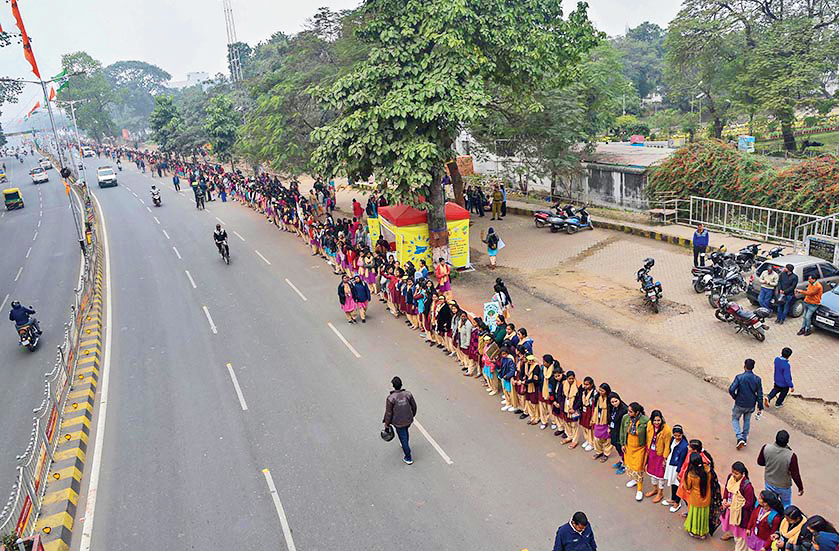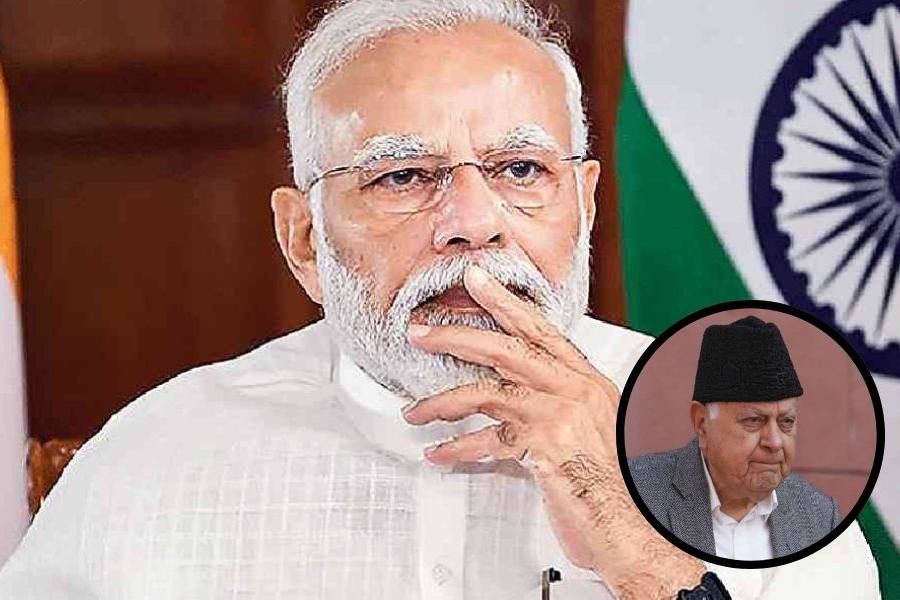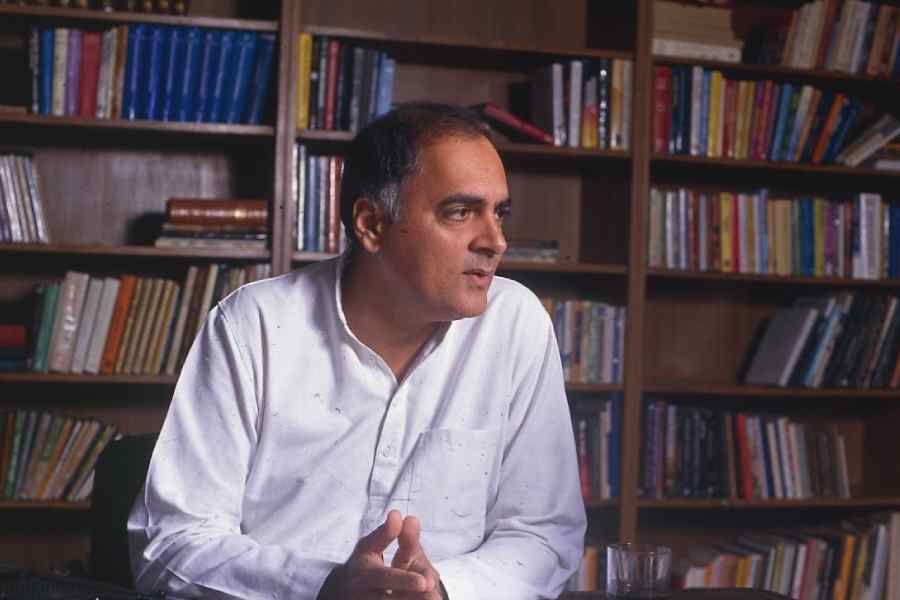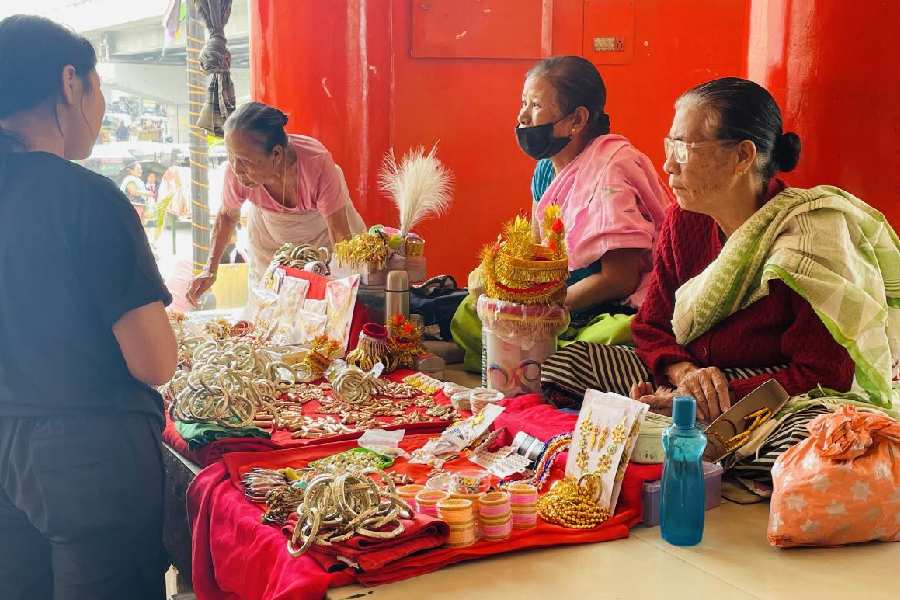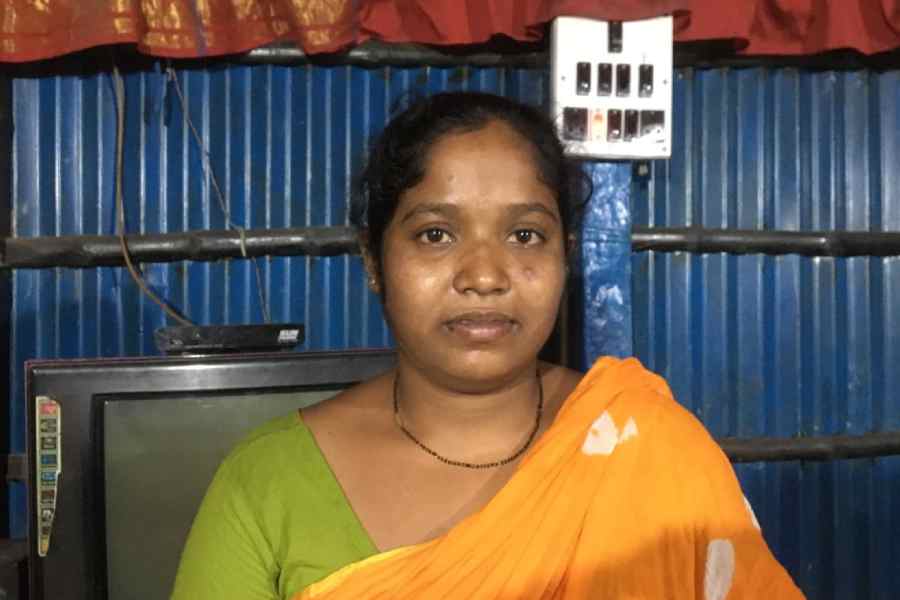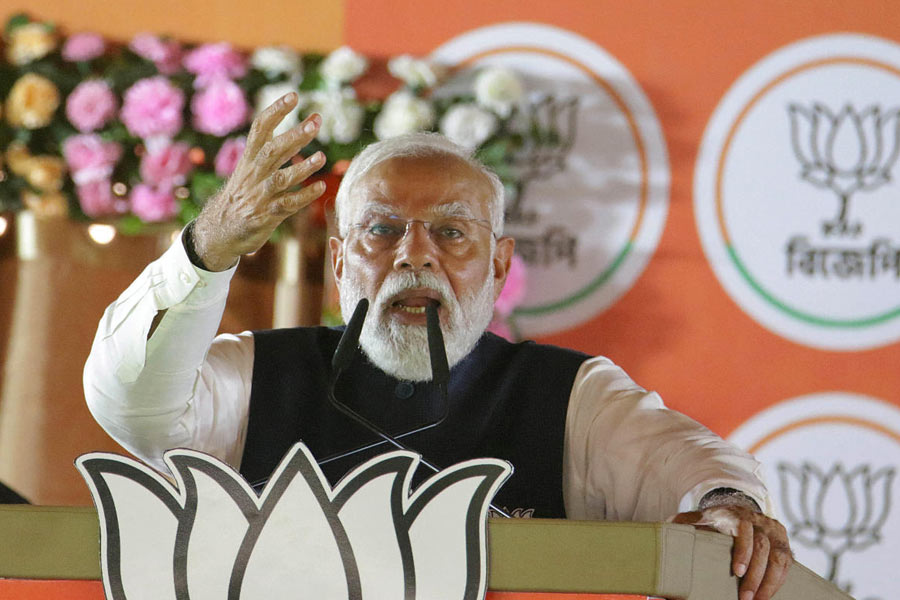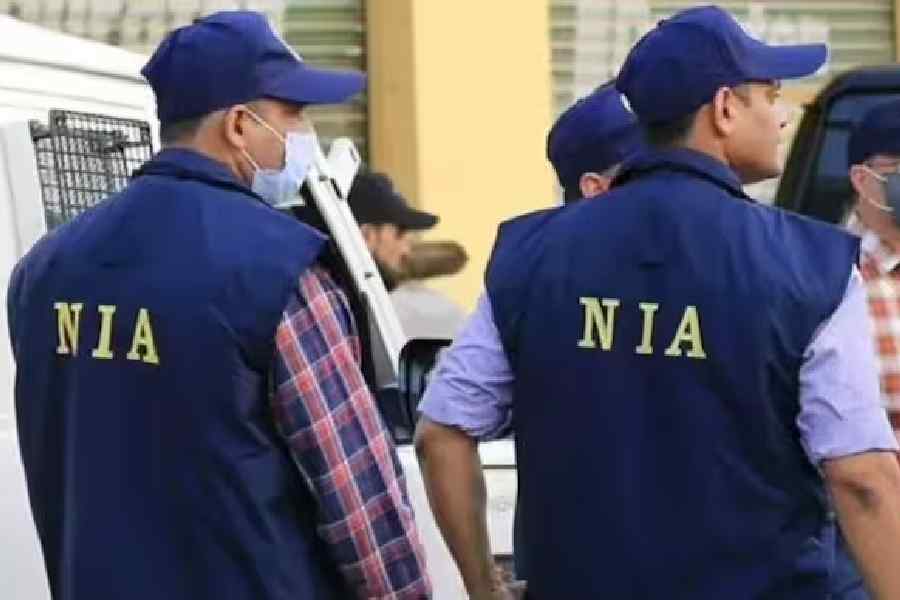Sir — Last Sunday, the Bihar government organized a 18,034-kilometre-long human chain, the longest in the world, under its ‘Jal-Jeevan-Hariyali’ campaign to spread awareness about environment protection. While this method is novel, spending Rs 19.6 crore on the project — 12 helicopters and three aeroplanes were hired to make aerial records of the event — from the state exchequer and engaging the entire administrative machinery were extravagances that Bihar can ill-afford, especially when the state has been demanding special status and financial grants from the Centre on various counts.
Hira Lal De,
Hooghly
New beginning
Sir — The former working president of the Bharatiya Janata Party, J.P. Nadda, has been elevated to the position of party chief (“At Nadda coronation, PM cries lies and bias”, Jan 21). But this only implies that Narendra Modi and Amit Shah wanted for this office a person who could work as a committed foot soldier in their scheme of things.
Nadda has risen through the ranks to get to his latest position. Associated with the Akhil Bharatiya Vidyarthi Parishad as a student, he has held several important posts over the years, ranging from organizational positions at the
district, state and national levels to ministerial positions at the Central and state levels. His skills were also put to the test in the 2019 Lok Sabha elections in Uttar Pradesh, where he proved to be successful.
With the Delhi assembly elections round the corner and polls in Bihar due later this year, the new BJP president has his task cut out. However, the road ahead for Nadda as party chief might not be as smooth as it had been for him when he held his past offices.
Ranganathan Sivakumar,
Chennai
Sir — The elevation of J.P. Nadda to the post of president of the BJP was along expected lines and should not be viewed as a significant event. In spite of acquiring his new office, it seems unlikely that Nadda will be able to play an autonomous role, given the sway that the prime minister, Narendra Modi, and the home minister, Amit Shah, hold over the party. In fact, it will be a surprise if Nadda proves this notion wrong.
The change of guard at the helm of the BJP hardly means the end of what is called the ‘Shah era’. There is no one to challenge Shah in his capability of leading a mass-based, Hindutva-oriented party like the BJP even if he does not hold an official position.
The fact that Hindutva defines the BJP makes Nadda’s job easier. All that he has to do to be regarded as a successful president is to swear his loyalty to the cause of Hindu nationalism and wrestle with the Left, liberal and secular forces
on the ideological battlefield. The BJP is even considered the world’s largest political party. Much is
said of its organizational strength, but this is attributable to what the BJP represents — Hindu revivalism and the interests of upper castes and corporate behemoths. The party does not work to improve the quality of life of the impoverished multitudes. There is, then, no point extolling its status.
G. David Milton,
Maruthancode, Tamil Nadu
Sir — Although the elections for the top post in the BJP had been postponed in the past, J.P. Nadda has now donned the cap of the BJP national president, taking up the Herculean challenges — these include proving his worth at the Delhi assembly elections — that lie ahead. Nadda was previously entrusted with the task of triumphing in the Lok Sabha elections in Uttar Pradesh in 2019. Notwithstanding the formidable alliance between the Samajwadi Party and the Bahujan Samaj Party, the BJP came out with flying colours, winning 62 out of 80 seats.
Rahul Chouhan,
Ujjain
Poor show
Sir — The Annual Status of Education Report, 2019 has brought to light a grave crisis with regard to the education system in India. This year, the study has focused on young children. It has revealed that only 37.4 per cent of children below six are able to recognize at least letters and only 25.6 per cent can do additions.
According to research, 90 per cent of brain growth in human beings occurs by the age of five. The fact that at least 25 per cent of schoolchildren between the ages of four and eight lack age-appropriate cognitive and numeracy skills means that immediate attention must be paid to the early years of children. This will help them in their later years of education.
Another worrying aspect that the study has highlighted is the fact that more pre-school children are getting enrolled in private schools than in the government-run institutions. This suggests that there is an urgent need to review the system — the quality of teaching staff, the curriculum, the accessibility to textbooks and other resources — in public schools across the country. Not all children can afford to go to private schools, and it is the responsibility of the government to look after these children. After all, they are the future of the country.
Noyonika Sen,
Calcutta
Sir — The findings of the ASER, 2019 are a setback to the current policy of education in India. The survey focuses on the ‘early years’ of children and lays emphasis on ‘developing problem-solving faculties and building memory’, and not ‘content knowledge’. The quality of early childhood education has a crucial impact on the development as well as the long-term schooling of a child.
Cognitive skills of children in their early years are strongly related to their ability to do early language and numeracy tasks. However, the report shows that a significant proportion of students fare poorly in this domain. This is shocking. The government should consider expanding the anganwadi outreach programmes, strengthening the Integrated Child Development Services system and reworking curricula and activities with a special focus on young children.
S.S. Paul,
Nadia

